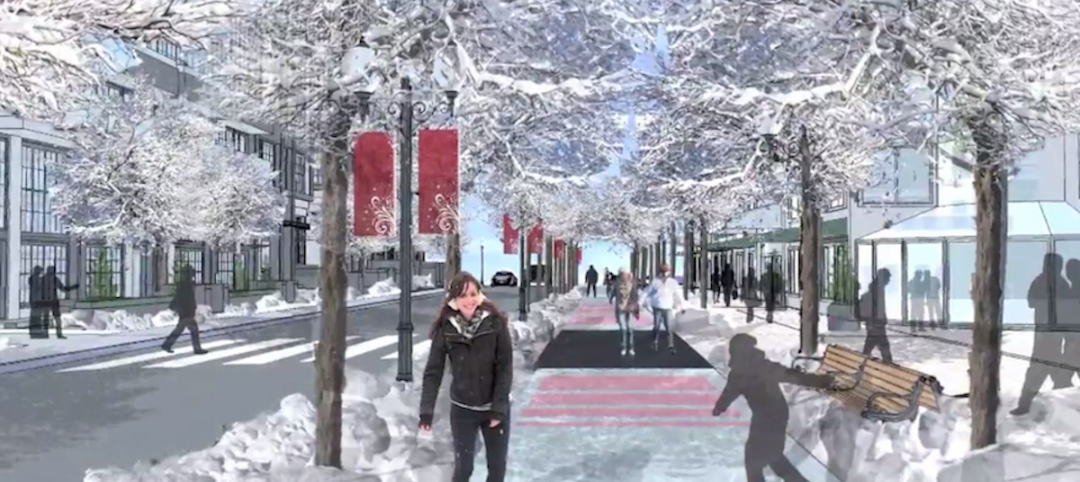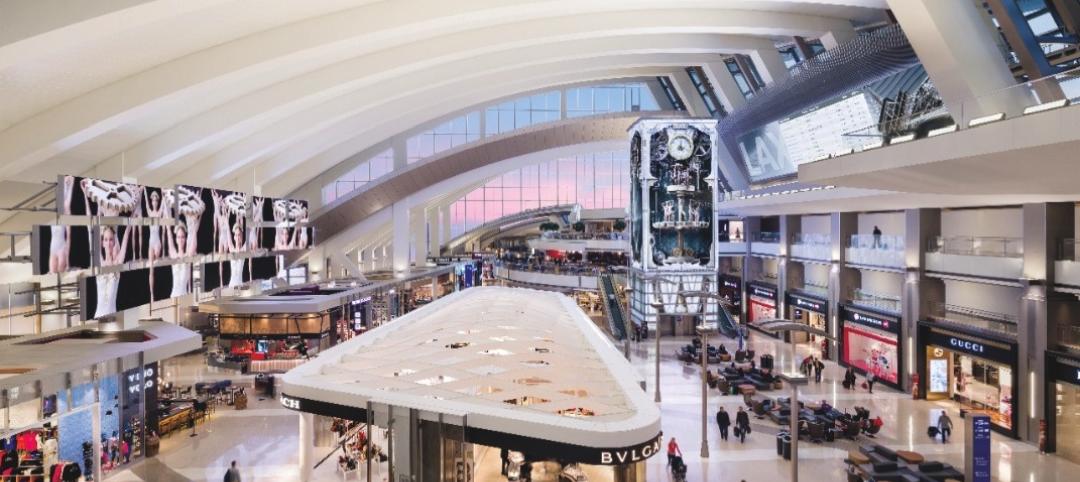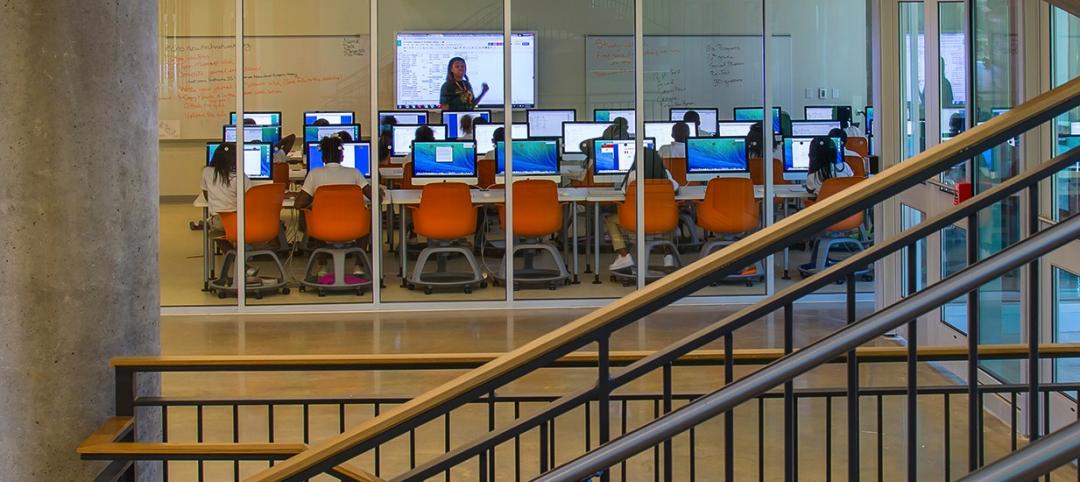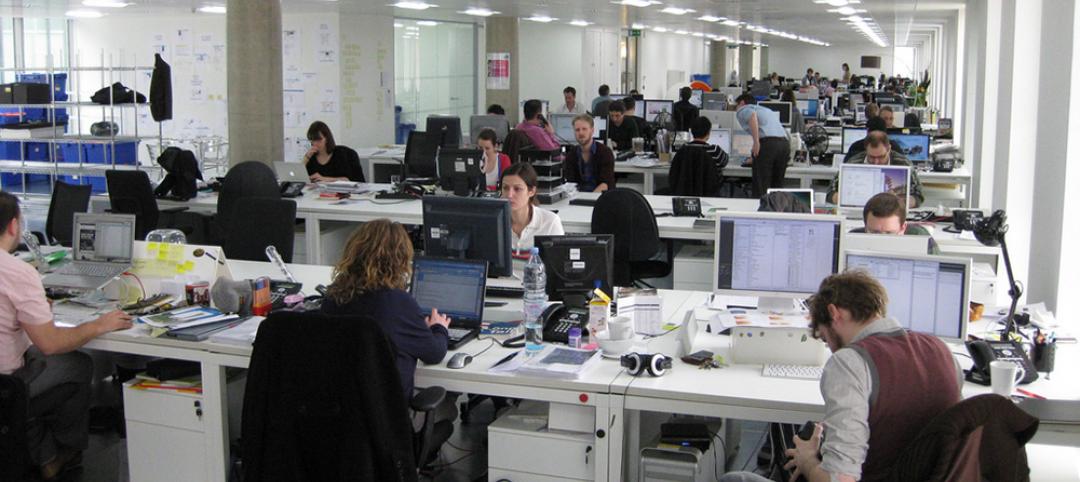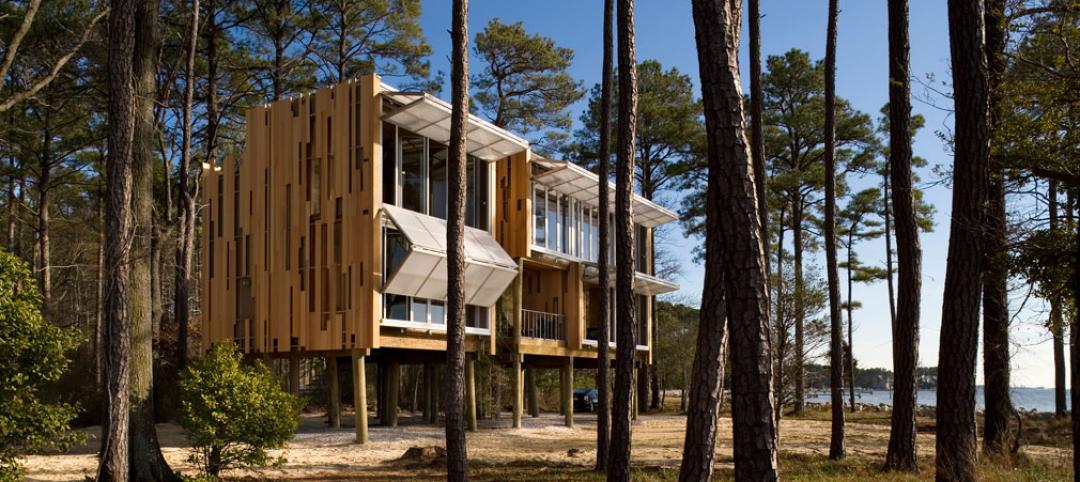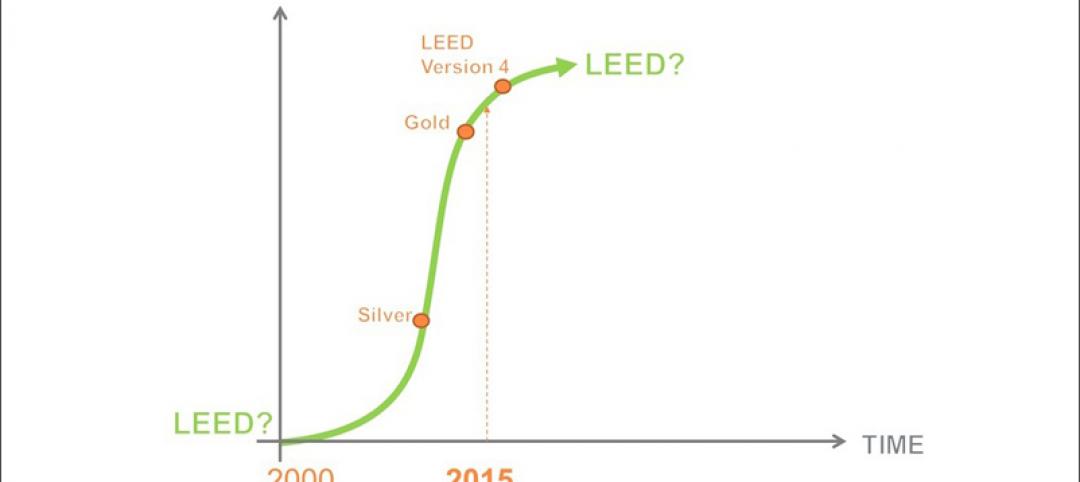Phoenix --The new Phoenix Regional Office of DPR Construction, designed by SmithGroupJJR, has been officially certified as a Net Zero Energy Building by the International Living Future Institute (ILFI). It’s the largest building in the world to achieve Net Zero Energy Building Certification through the Institute to date.
SmithGroupJJR designed the comprehensive renovation of the windowless, 1970s concrete block building, transitioning it into a model for sustainable adaptive reuse.
Located at the corner of 44th and Van Buren in a once declining area of Phoenix, the 16,533-square-foot storefront had most recently operated as an adult-themed boutique before standing vacant for three years. The eyesore building was purchased by DPR Construction, a national general contractor and construction manager, which was looking to build a highly-efficient, sustainable workplace and reaffirm its commitment to better the community in which it works.
Today, DPR’s new building is an ultra-energy efficient and modern workplace that’s embraced by its employees and the community.
“Many building owners may think it’s impossible to turn an aging, neglected building into something highly sustainable – especially in an extreme climate like Phoenix. But that’s precisely what we’ve achieved,” said Mark Roddy, AIA, LEED AP BD+C, SmithGroupJJR design principal. The entire project was completed in less than 10 months and is the first Net Zero Energy Building SmithGroupJJR has designed.
Net Zero Energy facilities integrate a combination of energy-producing technologies like solar and wind, and implement efficient HVAC and lighting systems to reduce a building’s overall energy usage. To achieve Net Zero Energy Building Certification, a facility must demonstrate a net energy consumption of zero over the span of one year.
SmithGroupJJR incorporated a range of advanced, sustainable design solutions to achieve Net Zero Energy consumption, such as:
— An 87-foot solar chimney enables a passive cooling system, releasing hot air out of the building while drawing cooler air in.
— Nearly 90 operable windows throughout the building work in tandem with the energy monitoring system to open and close based on indoor and outdoor temperatures.
— Eighty-two solar optical tubes, Solatubes harness light from rooftop domes and bring it into the workspace, nearly eliminating the need for artificial lighting.
— Twelve 8-foot diameter Big Ass Fans® circulate air flow throughout the office.
— A “vampire” switch cuts off 90 percent of plug loads, which would otherwise continue to draw power at night when the building is unoccupied.
— Four evaporative Shower Towers direct water-cooled air inside, also helping to regulate building temperatures.
— Producing power for the building is a 78.96 kW photovoltaic-covered canopy over half of the parking lot. The system is capable of generating enough power to offset the building’s annual energy usage and is critical to allowing the facility to achieve Net Zero energy consumption.
Tracking the building’s energy production and consumption in real time is an online building dashboard, prominently on display in the office’s reception area.
The new office building for DPR employees working in Phoenix is more than a sustainability powerhouse. Inside, SmithGroupJJR designed a “workplace of the future” environment, where employees share a common, open work environment void of enclosed, private offices. Unique, on-site amenities include a gym complete with men’s and women’s showers, a Zen Room for quiet breaks, and an 18-foot wine bar. A kitchen with café and two green-screened outside courtyards provide additional breakout venues. Video conferencing rooms, a learning lab, and a glass-walled Innovation Room with whiteboards and reconfigurable furniture encourage collaboration and teamwork. Rolling, glazed, garage-style doors can be raised to join the inside offices with an outside courtyard.
Since its completion in October 2011, the new DPR Phoenix Regional Office has become a living laboratory for the community, showcasing how to live and work sustainably in a desert environment. DPR has opened its building to host gatherings and meetings for a range of businesses and non-profit organizations. The company openly shares its building and the lessons that were learned during design and construction with audiences that include professional organizations, public and private programs, and school children of all ages.
DNV KEMA Energy and Sustainability served as sustainability consultant. Structural engineering was provided by PK Associates.
SmithGroupJJR (www.smithgroupjjr.com) is a recognized integrated design firm, ranked Top 10 in the U.S. by Architect, the magazine of the American Institute of Architects.A national leader in sustainabledesign, SmithGroupJJR has 351 LEED professionals and 88 LEED certified projects. SmithGroupJJR has four other buildings currently in design or under construction that aspire to be certified by the ILFI as Net Zero Energy Buildings.
Related Stories
Cultural Facilities | Feb 25, 2015
Edmonton considering 'freezeway' to embrace winter
If the new Edmonton Freezeway is constructed, residents will have an 11-km course that winds through the city and allows them to skate to work, school, and other city activities.
Building Team | Feb 24, 2015
Call for entries: 2015 Giants 300 survey
The annual Giants 300 Report ranks the top AEC firms in commercial construction, by revenue.
Industrial Facilities | Feb 24, 2015
Starchitecture meets agriculture: OMA unveils design for Kentucky community farming facility
The $460 million Food Port project will define a new model for the relationship between consumer and producer.
University Buildings | Feb 23, 2015
Future-proofing educational institutions: 5 trends to consider
In response to rapidly changing conditions in K-12 and higher education, institutions and school districts should consider these five trends to ensure a productive, educated future.
Office Buildings | Feb 23, 2015
The importance of quiet and the consequences of distraction
Recent work style studies show that the average knowledge worker spends 25-35% of their time doing heads-down focused work. Once thrown off track, it can take some 23 minutes for a worker to return to the original task.
Modular Building | Feb 23, 2015
Edge construction: The future of modular
Can innovative project delivery methods, namely modular construction, bring down costs and offer a solution for housing in urban markets? FXFOWLE’s David Wallance discusses the possibilities for modular.
| Feb 23, 2015
6 trends changing the way city dwellers live
Across the cultural grid, from food to retail to transportation, America's urban areas are already undergoing a major metamorphosis. Here are the six major trends shaping our cities, from Fast Company.
Green | Feb 23, 2015
State of the green union, and the next big shift in sustainability
The history of the green movement offers cues that we are on the precipice of another significant shift in the green union.
| Feb 23, 2015
Where are the iconic green buildings?
What does a green building look like? How would you know one if you saw one? Maybe a trivial question to some, but of great interest to architects, designers, and other members of the Building Team as the rapid evolution of sustainable buildings continues apace.
Sports and Recreational Facilities | Feb 21, 2015
Pumped-up recreation centers help build body, mind, and spirit
Adopting facility layouts from Asian and European models, today’s sports and recreational buildings are becoming social hubs that accommodate a variety of community needs.



